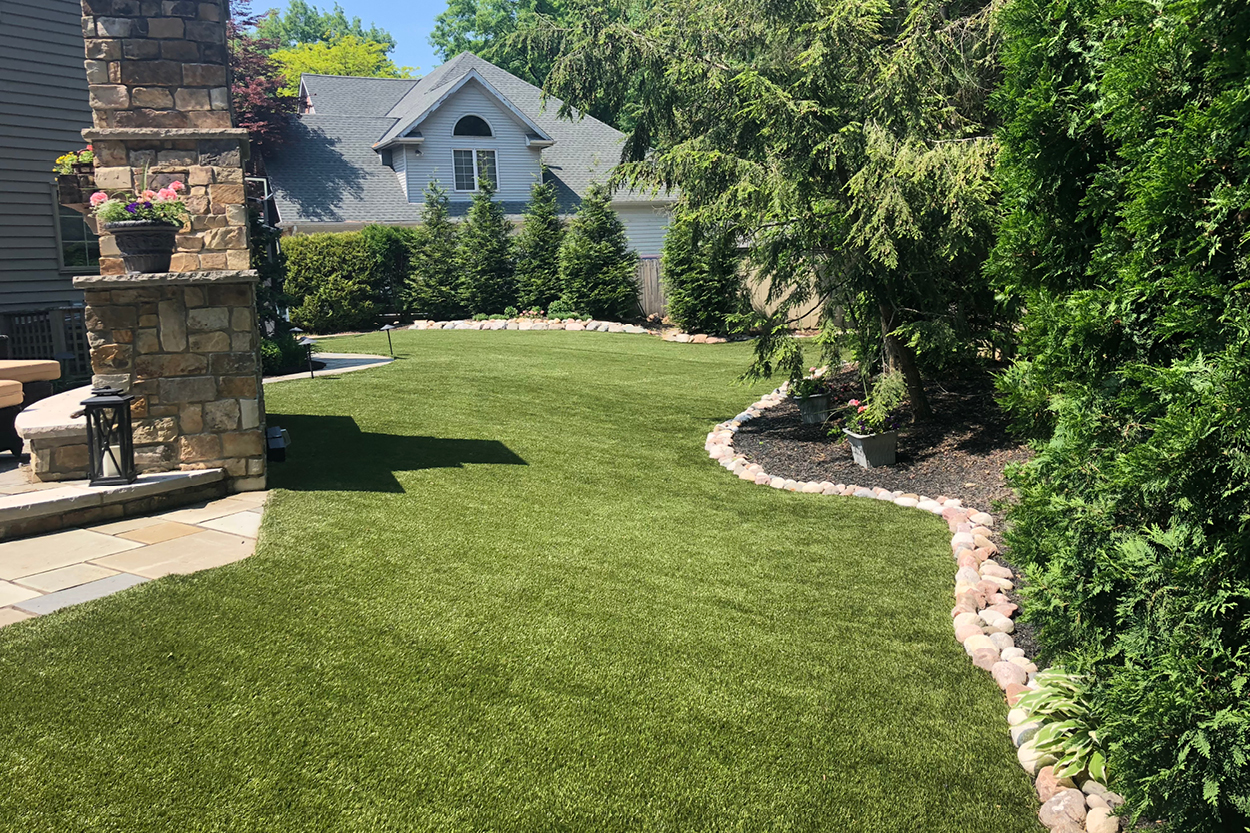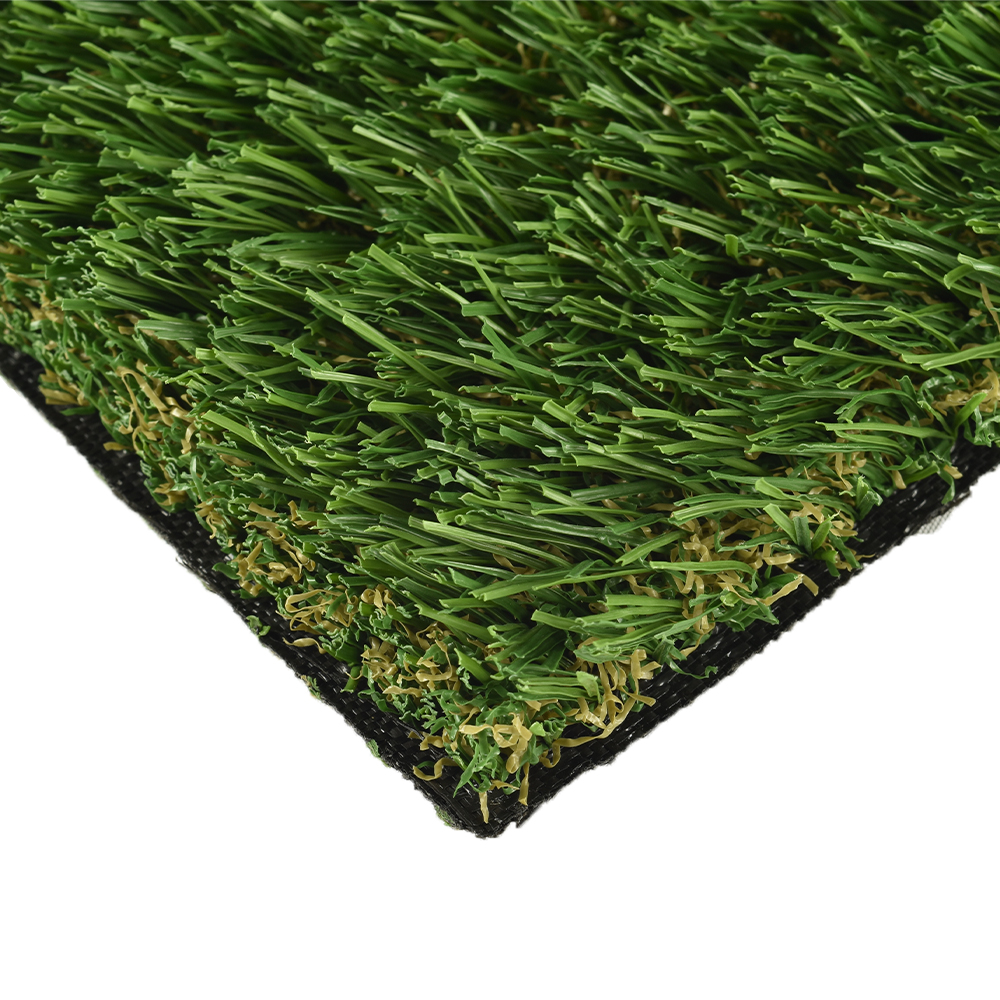Best Phoenix Turf Companies Providing High-Quality Synthetic Grass Options
Best Phoenix Turf Companies Providing High-Quality Synthetic Grass Options
Blog Article
Look Into the Environmental Benefits of Opting for Synthetic Grass Solutions
The fostering of synthetic grass options offers a compelling opportunity to attend to pushing environmental challenges. By dramatically decreasing water use and decreasing the application of damaging chemicals, these choices not just promote sustainable landscaping yet likewise shield neighborhood ecosystems. The lower carbon footprint connected with reduced upkeep activities contributes to an extra sustainable method to land monitoring. Nonetheless, the ramifications of these advantages expand beyond plain preservation efforts, questioning regarding their lasting effect on environment conservation and total eco-friendly balance. Checking out these measurements reveals an intricate interaction worth taking into consideration.
Water Preservation Benefits
One of one of the most substantial advantages of artificial lawn is its capacity to preserve water. Traditional turf yards call for substantial irrigation, specifically in locations susceptible to drought or water constraints. On the other hand, synthetic grass does not require watering, dramatically minimizing the overall demand for water resources. This feature is specifically useful in deserts where water scarcity is a pressing worry.
By getting rid of the requirement for normal watering, fabricated turf adds to lasting landscape methods and aids alleviate the environmental impact of excessive water usage. Additionally, the conservation of water includes the reduction of runoff, which can cause soil erosion and waterway air pollution.
Furthermore, the installment of synthetic grass allows house owners and municipalities to designate water sources more efficiently, concentrating on important uses such as drinking water and agriculture. The shift in the direction of man-made turf not only promotes liable water use but also lines up with more comprehensive ecological goals aimed at preserving natural deposits.
As neighborhoods significantly focus on sustainability, the water conservation advantages of synthetic grass offer an engaging situation for its fostering in business and residential landscape design tasks.
Minimized Chemical Usage
The transition to synthetic grass substantially reduces the reliance on chemical treatments generally used in natural yard upkeep. Standard turf management typically entails the application of pesticides, herbicides, and fertilizers to promote development and control pests. These chemicals can posture dangers to human health and wellness, neighborhood wild animals, and the environment, adding to dirt and water contamination.
In contrast, artificial grass eliminates the requirement for these hazardous substances. By minimizing the launch of synthetic substances right into the ecosystem, fabricated lawn promotes healthier dirt and water systems.
Moreover, the absence of chemical overflow linked with synthetic grass installations helps shield regional rivers from pollution, sustaining marine life and preserving biodiversity. Phoenix turf companies. As areas increasingly prioritize lasting techniques, choosing synthetic grass presents a sensible remedy that aligns with ecological conservation goals. Via this shift, residential property owners can take pleasure in rich eco-friendly areas without jeopardizing environmental health and wellness, paving the means for an extra lasting future
Lower Carbon Footprint

Furthermore, the installation of synthetic grass can lead to substantial water preservation. Natural lawns call for substantial amounts of water for watering, which not just includes in the carbon impact connected with water extraction and treatment yet likewise pressures regional water sources. On the other hand, synthetic grass requires marginal maintenance, needing no watering, thus significantly minimizing water use and helpful hints its linked power expenses.
Furthermore, the long life of artificial lawn contributes to its reduced carbon influence. With a lifespan of as much as 15 years or more, the need for regular replacements is decreased, causing less waste and lower energy consumption in production and taking care of typical turf choices. In general, synthetic grass offers a sustainable choice for environmentally mindful landscaping.
Environment Preservation
Habitat conservation is an essential consideration in the discussion over landscaping selections, particularly when comparing man-made turf to natural turf. Natural grass lawns usually call for extensive maintenance, consisting of the usage of chemicals, herbicides, and fertilizers, which can detrimentally affect neighborhood ecosystems. These chemicals can seep right into the dirt and waterways, hurting native vegetation and fauna and interrupting local habitats.
Synthetic turf removes the requirement for dangerous chemicals, consequently protecting nearby wild animals and maintaining the honesty of bordering ecosystems. The installment of artificial lawn can lead to the conversion of former yard locations right into more biodiverse landscapes, such as pollinator gardens or native plant find areas, which can sustain local wild animals.
Inevitably, the shift to synthetic grass not only saves water and minimizes maintenance initiatives however likewise fosters a much more harmonious connection between human tasks and the native environment, promoting habitat preservation at the same time.
Long-Term Sustainability
Lasting sustainability is a critical factor in assessing the advantages of fabricated grass over conventional turf yards. Among one of the most considerable advantages of synthetic grass is its longevity; it can last up to 15-20 years with marginal maintenance, whereas natural lawn requires constant reseeding and replacement. This longevity minimizes the need for constant sources, such as water, plant foods, and pesticides, which are important for maintaining a healthy yard yard.
Additionally, fabricated turf adds to a reduction in carbon discharges connected with grass treatment devices. Conventional grass typically call for gas-powered mowers, leaners, and blowers, all of which add to air contamination. Phoenix turf companies. On the other hand, artificial grass eliminates the demand for such tools, advertising a cleaner atmosphere
In addition, the production of synthetic grass significantly utilizes recycled products, improving its sustainability profile. As manufacturers adopt environmentally friendly techniques, the ecological impact of artificial grass remains to diminish.

Final Thought
The fostering of synthetic grass solutions presents substantial ecological benefits, including significant water conservation, lowered dependence on hazardous chemicals, and a reduced carbon footprint. Synthetic grass help in maintaining all-natural habitats by reducing land disturbance and promoting long-term sustainability via the use of resilient materials. Collectively, these variables emphasize the possibility of artificial grass to add favorably to environmental wellness and use a feasible option to typical landscape design techniques in a progressively resource-conscious world.
In contrast, man-made lawn does not require watering, considerably decreasing the total demand for water resources. By decreasing the release of artificial compounds into the ecosystem, synthetic get redirected here grass advertises much healthier dirt and water systems.
Furthermore, the setup of artificial grass can result in substantial water conservation. In contrast, artificial grass requires marginal maintenance, calling for no watering, thereby substantially decreasing water usage and its connected energy prices.

Report this page